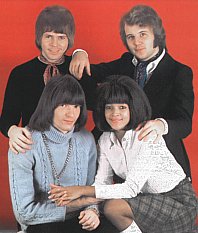
Sue Ling (fictitious name) was born 1967 in Malaysia as a third generation Chinese immigrant. She went through the Malaysian government school system, in a catholic convent school, where she learned Bahasa Malay and English. At home Sue Ling spoke the Chinese dialect Teo Chew with her family. Living in a Chinese community Sue Ling also learned to speak Mandarin and some Cantonese.
Sue passed college in Kuala Lumpur and took a university degree in Oklahoma USA.
After 5 years in the states Sue Ling moved to Singapore, worked and lived there as a PR for 8 years. During that time she met her becoming husband whom she married and followed to settle down in Sweden.
After been living in Sweden for 8 years and having 4 children in Sweden, I ask her the following questions about being an immigrant in Sweden.
Question: Is there a difference being an immigrant in Sweden compared to Malaysia?I don't feel like an immigrant in Malaysia, even if my fore fathers came from China. I'm a Malaysian, I grew up there. I'm sure my children don’t feel like immigrants in Sweden either.
Question: Is Sweden easy or hard to be an immigrant in?If I would fantasize of being a Swede moving to Malaysia, I would say the transition would be easier in Malaysia as an immigrant due to the language barrier. When you move to Malaysia you have very little language barrier. It's a multi lingual country and almost everybody speaks English there. Swedish children learn English in school but Malaysian children do not learn Swedish in school. With less language barrier, the transition into the society is much easier. Other sets of problem will come in of course. Like the cultural difference, the culture shock, finding employment and so forth.
Question: Are you a Swedish citizen?No
Question: Why not?Because I am proud to be a Malaysian, I want to die as a Malaysian. I have no need to become a Swede. I don't see a need to convert to be a Swede because I don't think Sweden has so much to offer me. The only advantage I will get to become a Swedish citizen is the right to vote and since politics is not my favourite subject I can skip that.
Question: Doesn’t that make you feel that you are outside the democratic process in Sweden?Maybe it's a very selfish attitude I have. Maybe I should care more about who is governing the country because it will affect the coming generations. If it was possible for me to have dual citizenship I wouldn't mind applying for a Swedish citizenship. But in Malaysia it's not allowed to have two citizenships. I wouldn't risk loosing my Malaysian citizenship to get a Swedish one.
Question: Do you feel a pressure to convert into a Swede to become a Swedish citizen?I think there is a general assumption from society and from friends that the ultimate goal for me is to become a Swede. It's an unasked question in the air. I don't take it as a pressure but I believe other people may do if they are in my position.
Question: What do you appreciate most in Sweden?I appreciate the nature and the fact that everybody is entitled to the nature. It’s everybody’s responsibility to preserve the nature and what it has to offer. This awareness is impressive. That's the mentality we need to cultivate for the generations to come.
Question: What do you miss most in Sweden?I miss the competitiveness. Swedes tend to be self contented because they believe 'they have it so good' and there can't be a better place on earth than where they are. That bugs me because there are a lot more we can learn from outside of Sweden. If only people would stop being so self-contained and self centered they can start to strive to make it a better world.
Question: What do you appreciate most in the Swedish mentality?The Swedish mentality, hmm, what is the Swedish mentality, give me some examples? After eight years I still don't know what the true Swedish mentality is.
One famous Swedish mentality is equal rights for females. I'm not a feminist so I can't fully appreciate that.
But I do appreciate that in Sweden girls have different status, almost the same status as boys. Therefore girls are encouraged to do anything they wish to do. You don't curb the creativity and potential of a certain gender in this society.
Another widely spread Swedish mentality is equality for all people. Sweden has an open policy towards immigrants from all nations. But what they are not saying, the fine print in this mentality, is as long as you come in and become a Swede you are welcome, but you should not come in and stand out as an individual. Standing out is not appreciated because everybody should be equal. But that's not correct since everybody is unique. How can everybody be the same and be expected to do the same things? People should not suppress their full potential just because there is a mentality that no one is better than the next.
Question: What do you dislike most in the Swedish mentality?Sweden is supposed to be a Christian country but you can't see that in the Swedish lifestyle. There is a lot of "I need more"(material comfort) mentality in this country instead of I need God !
Question: How do you feel about seeing your children growing up in Sweden?In this country, you don't teach children to respect their parents. You put the children in child care at the age of one year old because everybody wants to work. They work because they are sold into the thinking that this is the right way to lead a successful life. Family relationships are not stressed enough since everybody is so self-contained. We are moulding the society into a selfish society.
Parents have the tendancy to treat the children as equals rather then establishing the parental authority. Hence, many children grow up lacking of no discipline. This is against everything I have learned and I would never raise my children the Swedish way, no way.
The government is sending mixed signals to the families. World famous maternity leave with guaranteed job when you return, and you are also entitled to work part-time upon the return. This is all good but the mixed signals come when mothers choose to stay home with their children after maternity leave is over. Then suddenly they are worth nothing to the society.
I'm happy to see my children being proud of being Swedes but at the same time I will not be happy if they adopt all the Swedish mentalities along with the national pride.
Question: Do you regret moving to Sweden on a permanent basis?
No I don't regret moving to Sweden because I still believe that wherever my husband go I would follow him and as long as he is here I will be able to put up with anything, even being a nobody in this system.
Question: What do you think about the famous Swedish social insurance system?
I think it has good and bad sides. Good is that you are allowed to stay home the first year when you have a baby and come back to your old job, that is very good for a working mother.
Bad is when you have to queue up to get in contact with a clinic and then you have to queue up to get to see a doctor. In Malaysia, there are lots of private clinics which are open 24 hours and you can always run there and get an appointment very quickly. In Malaysia there is always fast access to a doctor, it’s not subsidized as here but you get access to it much faster. And you may need that if you are sick.
Question: What do you think about the Swedish school system?
I don't know enough to make a fair statement. Ask me again in a few years when my children have been there and I have more experience.
Question: Do you feel you are treated equally to a Swede?In a way yes. I haven't been employed in Sweden, but due to the fact I am married to a Swede, I got into the system and am entitled to the same benefits as the next Swede.
I look different, have a different colour tone and yet people often assume I'm a Swede rather than I'm a foreigner, meaning people start talking to me in Swedish. I think there are so many immigrants in this country so people are used to see immigrants from all races.





 Maybe the headline answers the question. Anyway I will dwell on this subject because my wife asked me to do so and I believe it is an interesting subject.
Maybe the headline answers the question. Anyway I will dwell on this subject because my wife asked me to do so and I believe it is an interesting subject.













